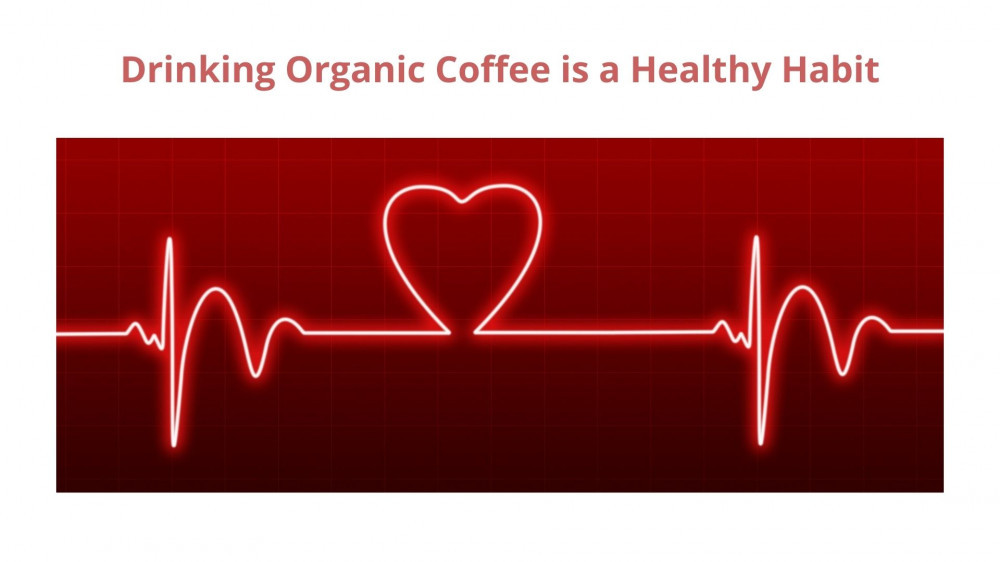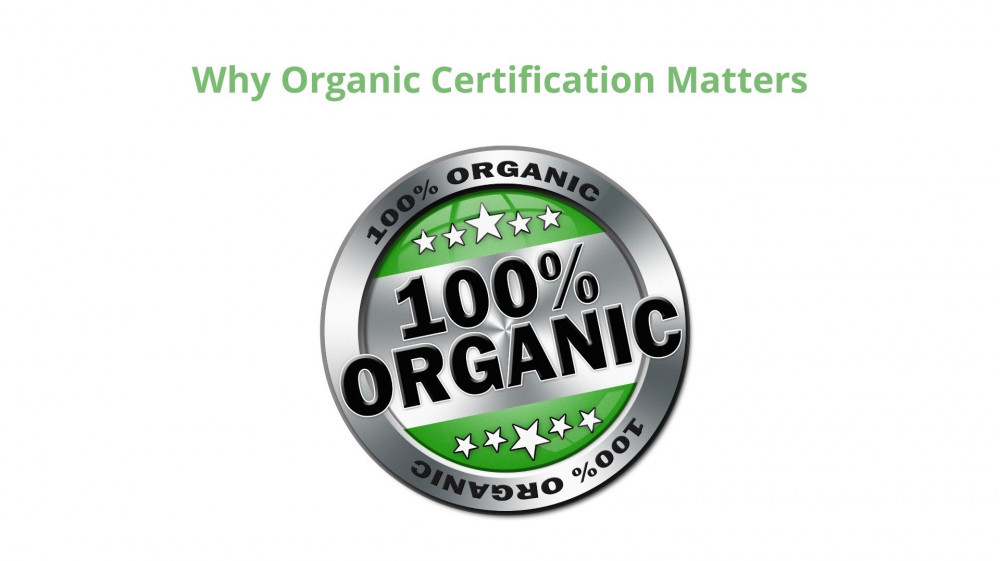There Are Many Reasons Why You Should Consider It
Organic coffee isn’t only healthy for our bodies. It is also good for the environment. Organic coffee farmers seek to maintain an adequate ecological balance and to improve the biological diversity of the land.
Organic coffee farmers implement practices that promote sustainability, which means that future crops are likely to yield the same quality as present ones.
Our bodies will thank us for drinking organic coffee now, and by drinking organic coffee we are contributing to keeping organic farmers in business.
Coffee that is grown using organic methods (especially if tested by independent third party labs) gives us confidence that we will be maximizing the health benefits of drinking coffee and that we will also be minimizing the risks of adverse effects caused by the presence of harmful chemicals.
It’s Great That Many People Are Asking This Question
Organic coffee continues to grow in popularity, and with that popularity there is more awareness now. So often I’m asked, “should I buy organic coffee?”
It makes my day to hear that question, and I am always happy to answer it. Drinking coffee produced using conventional farming methods can be counterproductive, and that’s one of the main reasons why I think coffee produced using organic methods is a better alternative.
Drinking regular coffee can be as counterproductive for our health as gravity is to the momentum of objects thrown up in the air. My answer to those who ask if they should drink organic coffee is, “absolutely, if you want to benefit as much as possible from drinking coffee.”
Certified Organic Coffee Brands
In general, the process specified by the USDA for growers to become certified covers just about every possible aspect of farming from beginning to end.
For those not familiar with organic farming, this organic crop producers guide is an excellent and detailed resource for learning about organic process compliance.
As explained in this article about organic green coffee, for all the rigors that underlie organic certification, organic brands can’t legitimately make product quality claims. The certification only covers the process.
Still, a little bit of common sense can go a long way. Yes there are “loopholes” in organic certification, but they mainly cover things that are allowed as a last resort (and only when completely unavoidable ).
Odds are in your favor that, when you buy organic coffee from your favorite brand, it will be among the majority that didn’t have to resort to using permitted fertilizers or pesticides.
Besides, all a certified organic coffee brand needs to do to walk their coffee across the finish line (to be able to make product quality claims) is to submit the coffee to independent third party lab testing.
My personal favorite, which I will be mentioning in another section below, does just that.

Organic Coffee Health Benefits
While drinking even regular coffee offers a number of potential benefits, unknowingly drinking coffee that is contaminated with dangerous chemicals might limit or eliminate some of those benefits.
Earlier I mentioned that coffee contains some substances that are essential to our good health. Those substances help protect many of our organs from damage and disease.
The liver is one organ that is particularly responsive to both the good and bad substances that might be in coffee. It plays a vital role in neutralizing toxins when healthy.
If it gets overloaded with toxins, in the short term it will lose its effectiveness in neutralizing harmful substances. Over time, it also becomes susceptible to diseases such as cancer.
The liver is far from the only organ that can be affected by harmful chemicals, but I mentioned it first and foremost because of its important role in helping detoxify our bodies.
Drinking organic coffee is the best bet for maintaining a healthy liver and for maintaining a healthy body in general.
There isn’t the lurking or real danger that is present in most regular coffee of putting things in our bodies that can harm us.
Where to Buy Organic Coffee Online
Based on what I mentioned previously, most people realize that organic coffee is worthy of its favorable reputation. Then they ask the logical question, “where can I buy organic coffee?”
I would say that e-commerce stores are often the best bet. In my experience, finding organic coffee in brick and mortar stores is hit-and-miss.
Organic coffee is usually relatively easy to find in major metropolitan areas, but that’s not necessarily the case elsewhere.
Another reason to buy online is that some of the best brands are not available in stores. Also, many brands offer a variety of ways to save on online purchases.
Some examples are loyalty rewards, subscribe and save options, and quantity discounts.
Deciding exactly where to buy online to take advantage of these potential savings is something that I’ll mainly leave at each individual’s discretion.
Some people have strong brand preferences, and for them choosing stores is pretty much a no-brainer. Those who like to shop around for the best deals will find that it pays off, since many brands offer periodic special promotions.
My Top Recommendation
There likely aren’t two organic system plans (OSPs) that are exactly alike. That’s because, among other things, no two farms are exactly alike.
The conditions that exist in a given farm are going to call for elements in the OSP that are tailored to its specific conditions.
While brands are required to be completely transparent about their plans and the implementation of their plans with those who inspect and certify them, not all brands are quite as transparent with their customers.
Lifeboost Coffee is exceptionally transparent about the way they grow and process their coffee. They are one of those brands that can legitimately make claims about the quality of their coffee, because they have the independent third party lab tests to back them.
In fact, they make some pretty bold claims. They evidently back up those claims quite well, and that’s why they consistently tend to get the best organic coffee reviews.
I thoroughly analyzed the information that this coffee company provides. If you read my analysis of Lifeboost Coffee, I think that you will agree that buying organic coffee (and especially Lifeboost Coffee) is a wise decision.


I am a huge fan of coffee and definitely love to have a few cups throughout the day. For the best experience, it is critical to have a great roasted coffee bean to start with. You list a lot of great reasons that organic choices are a smart option!
I would add that in order for the best tasting coffee, you need to make sure that you brew your coffee with good water. I like spring water the best, but filtered water will also help to make sure that your coffee doesn’t take on any strange flavors that come from tap water.
Thank you for your message, Aly. These are all great points you bring up. In particular, I’m glad you mentioned using filtered or spring water. Not only do they tend to be healthier than tap water, but they have a very favorable impact on the taste of the coffee too.
George
I found your article trying to find out if it is a better option for me to drink organic coffee after my stroke instead of regular brands of coffee high in c caffeine or just give up coffee altogether. After reading your blog post, I believe I am going to try organic coffee, but first, I need to share it with my nurse practitioner on social media to get approval.
Thank you for your comment, Jannette. I hope that you get the OK from your NP and can continue to enjoy drinking coffee. There are quite a few good organic brands with relatively low caffeine content that I believe you would end up liking.
George
Hi there,
I found your article very interesting. Thank you for sharing it.
I am a coffee lover. In fact, I am addicted to coffee. I was surfing the net and reading about organic coffee, and that’s how I found your website. I still don’t understand the difference between organic coffee and classic coffee because when I read the ingredient on my bottle’s coffee, it’s written 100% coffee. I don’t see any chemicals. It’s pure coffee. So I wonder what makes a coffee organic? Do they use special ingredients?
Thank you very much for this great post
Hello, Daniella. Thank you for your message. There’s so much information to cover about organic coffee that it’s quite a challenge to summarize it all.
The Organic Crop Producers Guide that I mentioned in the article is a 64 page document, for example. It’s aimed at those who are learning the process of becoming certified as organic growers, so it mainly covers the essentials. Yet, it’s still fairly long.
Every imaginable aspect of organic coffee farms, the methods used, and the coffee grown there is covered in the guide. The seeds, the soil, the environment surrounding the farm, and the inputs (fertilizers, pesticides, etc.) used are some examples. The organic certification process is very rigorous.
There are no special ingredients in organic coffee. Except in rare cases, the seeds cannot be genetically modified.
The chemicals in regular coffee aren’t necessarily things like artificial flavoring, but they are rather residues from substances like synthetic pesticides and insecticides. These inorganic substances are generally not allowed in organic farming (thought similar to exceptions for GMO seeds, there are some limited last resort exceptions for these too).
Organic certification is a process certification, and it simply means that organic methods were used to grow the crops. While there is an expectation of a higher quality product, organic certification is not a product guarantee.
To guarantee the quality of the coffee, that can be done when the coffee is tested by independent third party labs (and the coffee can be certified to be free of all the chemicals tested for). One of the few brands that does this is Lifeboost coffee, which I highly recommend.